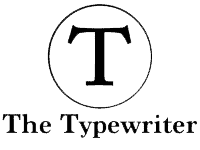What is constitutional law? How does this affect U.S. citizens? Maybe the Marbury v. Madison case found in chapter two of our legal business environment books may refresh your memory. In this case, the Supreme Court seized the power of judicial review. What is judicial review? Judicial review is the power to declare a law to be unconstitutional and the power to interpret the constitution.
Right now, the judicial branch has this power. Would I prefer that the Congress or the President to have the power to declare prayer in schools unconstitutional or burning the American flag to be protected expression rather than the court? Would I change the authority to one or the other branches of government?
Constitutional law, according to Cornell University Law School, is how the constitution is interpreted and implemented. It solely focuses on the foundations of our society in the U.S. and it relies heavily upon the Supreme Court’s rulings. The Supreme Court is the judicial branch. The one major branch out of the three. Why is it considered major? It is considered to be a major branch because it is the ruling of the Supreme Court’s decision that makes a law definite or not definite.
How does constitutional law affect us?
A way of looking at the Supreme Court is think as your Mom or Dad. As a little kid, your Mom and Dad have the absolute say so on everything you do. You can’t misbehave without your parents coming to punish you for your behavior. The Supreme Court’s decision acts in the same way. Except the decision is more powerful than your parents’ permission and rules. Without the Supreme Court having the power it does, our society wouldn’t be where it is today. As citizens of the United States, we have to follow the rules of what the Supreme Court decides is lawful and unlawful.
Remember the Marbury v. Madison case? Well, as a U.S citizen you should very well know the popular case that has also been taught to students every year they take a government course. It should be grounded into your brains by now. But, if not then the Marbury versus Madison case involved the Supreme Court seizing the power of judicial review. Which then is the power to interpret and declare a law to be unconstitutional. So, what did the Supreme Court declare unconstitutional in this specific case that affected us all?

According to Alex McBride’s article, Chief Justice John Marshall made a step in law that made the Supreme Court be an equal part of the other two branches. The Justice ruled that Marbury did have a writ and should be rewarded a remedy by the court. The Supreme Court is to uphold the supreme law of the land. And even if the decision isn’t what the President (executive branch) and Congress (legislative branch) doesn’t agree with, that it is still the duty of the Supreme Court to declare what is constitutional right or wrong. In the end Marbury lost his case against Madison to show why he couldn’t receive is commission, but it lead to the Supreme Court stepping up as the third branch and defining its powers to uphold the law.
I would not want Congress or the President to have the power to declare what is or isn’t constitutional. Congress is made up powerful politicians who care nothing but power and money. They are dirty and scandalous. The President isn’t any different. Look at Obama for instance, he won’t straight out say that Muslims are evil and that we should in every way possible to stop the Muslims. But of course a Muslim would say that about his own people now would he? So, since Obama is President, I wouldn’t want my constitutional rights to placed his or Congress’s hands.
Right now, the President Obama can override Congress’s decision. So, therefore someone like Obama handling my country’s constitutional rights is just not going to work. I rather keep the constitutional law and judicial review power within the Supreme Court. Because, no matter what issues our country faces, I can always rely on the Supreme Court to uphold the Constitution of the United States. President Obama according to the Daily Caller, has made 10 constitutional violations. I don’t want a single man that violates the constitution to have the power that the Supreme Court has.
Therefore, I would keep the judicial review power within just the Supreme Court.
